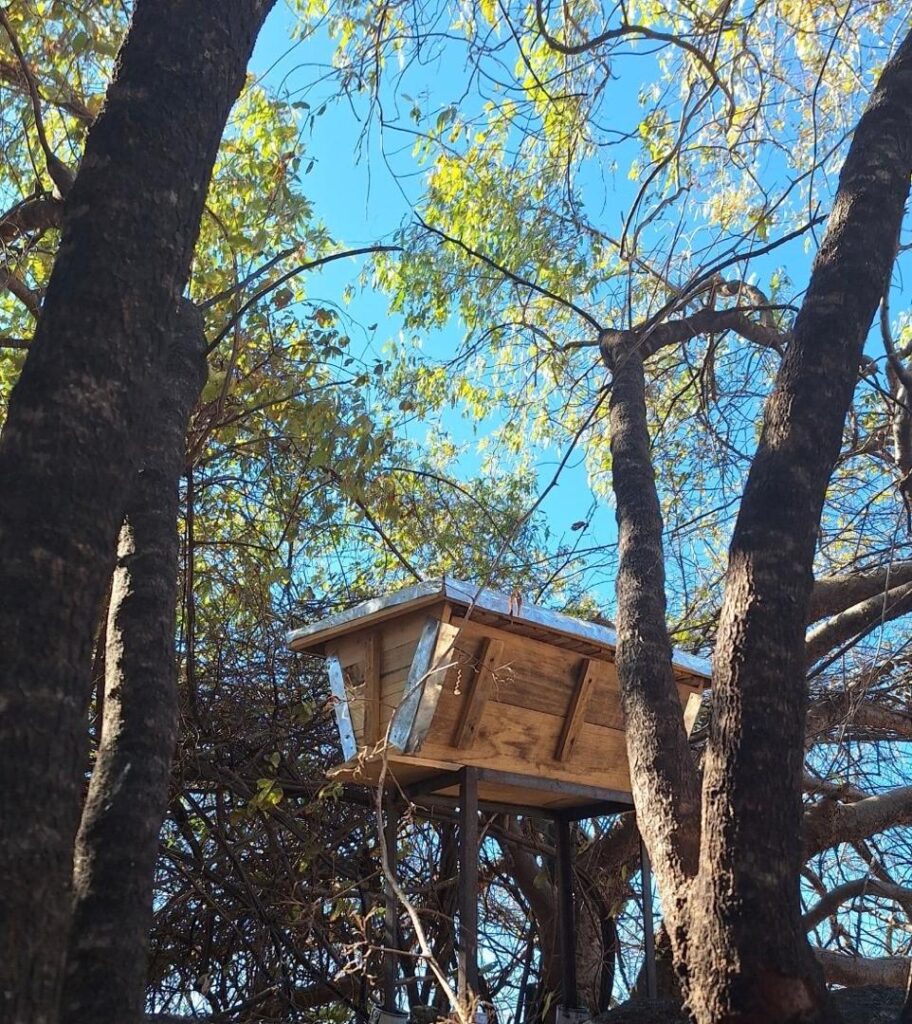
Beekeeping: A Climate Resilient Livelihood Opportunity for women
WITH majority of the Zimbabwean Rural farmers depending on rain fed agriculture, climate change shocks have seen most farmers having very little harvest in the 2023/2024 farming season. There is an urgency of climate resilient livelihood opportunities promoted by the Locally Led Indigenous Nature Based Solutions for Climate Change Adaption in Zimbabwe (LINCZ) Project implemented by Brethren In Christ-Compassionate and Development Services (BIC-CDS) in Gwanda. Mrs Molly Moyo, a 73-year-old woman has been venturing into apiculture for almost 20 years but was affected by the harsh climatic conditions from cyclone Dineo experienced in 2016/2017 to extreme drought in the 2023/2024 season.
Molly has been relying on beekeeping as an alternative source of livelihood and states that she has enjoyed the profits of beekeeping and had turned it into an income generating initiative. She owned six (6) Tanzanian Top Bar beehives were she would harvest at least 25 liters of honey from each. She notes:
“I was a well-known beekeeper and would sell honey to the local community, nearby school teachers and in Gwanda town. Income from beekeeping was enough to buy uniforms, send my children to school and cater for other basic needs”
However, these were later exposed to and destroyed by extreme weather conditions especially Cyclone Dineo experienced in the 2016/2017 farming season. She highlighted that beekeeping was and still is highly a male dominated field as it is deemed dangerous for women and girls. She had a desire to see other women and girls adopt and utilise it as an alternative source of income. Through support from the LINCZ project, Molly Moyo together with other women in Ward 4, Gwanda North have formed a beekeeping Rise and Shine Club which has been imperative in knowledge and skills dissemination on beekeeping.
Through her vast experience in beekeeping dating from years back, Molly has been leading the group as the chairperson and offering technical advice to the beekeepers in the group. She has assisted members in the setup of beehives in the apiaries to ensure high possibility of hive colonization and sharing various tried indigenous knowledge systems that can be used to ensure high returns. With each beekeeper having received two (2) Kenyan top-bar beehives and a beekeeping suit to aid in farm catching, beehive inspection and honey harvesting, the Rise and Shine members have expressed their appreciation of the project, the beekeeping trainings received and the beekeeping equipment received from BIC-CDS to kick start their beekeeping journey.
The Rise and Shine beekeeping club supported by BIC-CDS has aided the planting of trees in the apiary in order to reduce travelling distance in search of forage which will enhance the rate of honey production. Beekeeping will not only be an alternative livelihood source but will also contribute to the enhancement of biodiversity and foster the spirit of togetherness ubuntu which is part of the Ndebele culture.
Climate change has significantly impacted rural farmers in Zimbabwe, leading to poor harvests in recent seasons. The LINCZ project has been instrumental in promoting climate-resilient alternatives like beekeeping. Molly Moyo’s success with beekeeping highlights its potential as a sustainable income source, especially for women. The Rise and Shine Club is a great initiative, fostering community and environmental benefits. How can this project expand to benefit more rural communities? WordAiApi